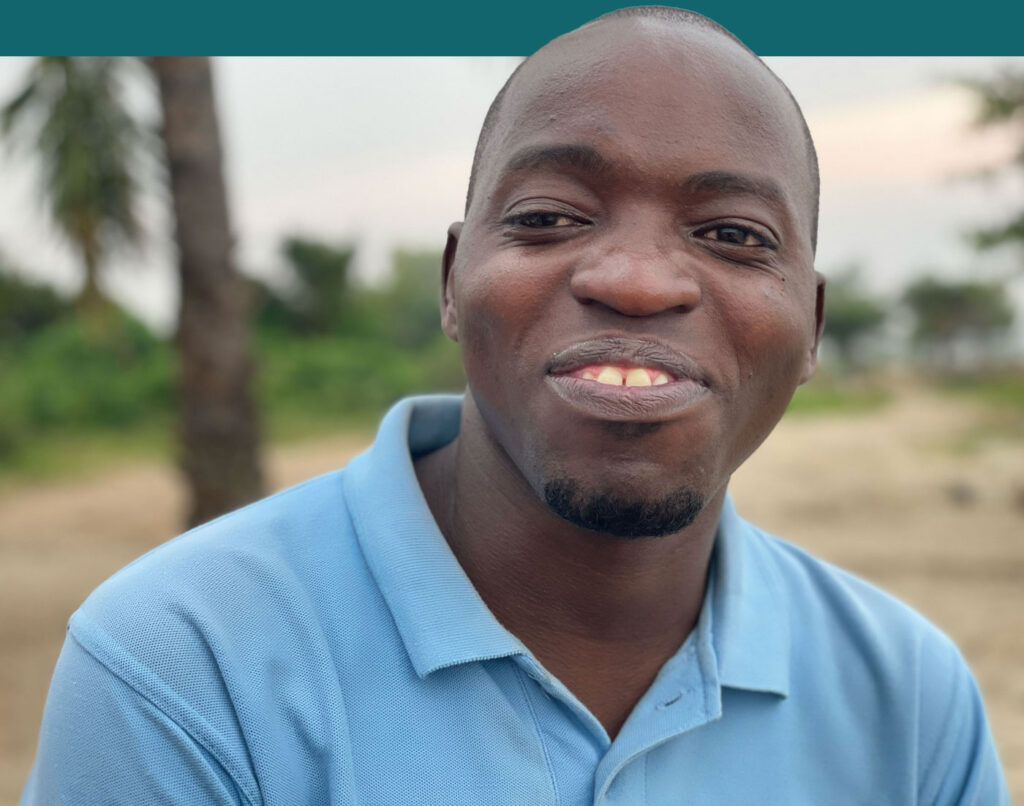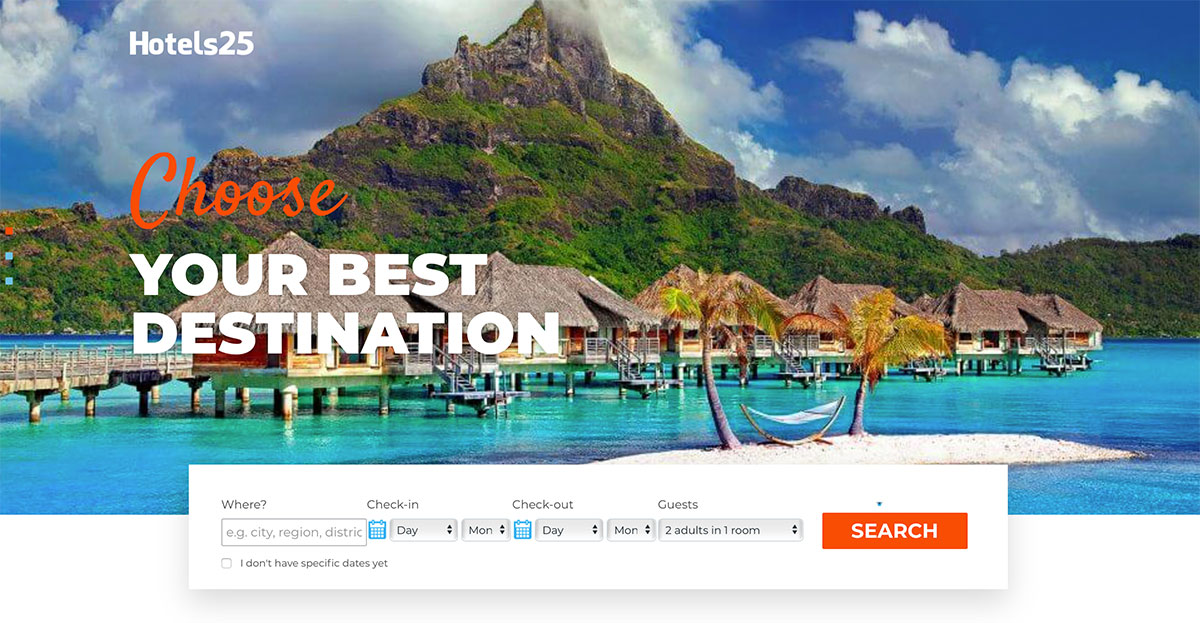As I embarked on my travels through the heart of Africa, I found myself drawn to the intriguing tales of two neighbouring countries: Rwanda and Burundi. They are both nestled in the Great Lakes region, and both giving me with promises of stunning landscapes and rich cultural heritage. Little did I know, my journey would reveal the stark contrasts that define these two lands, each with its own story to tell.
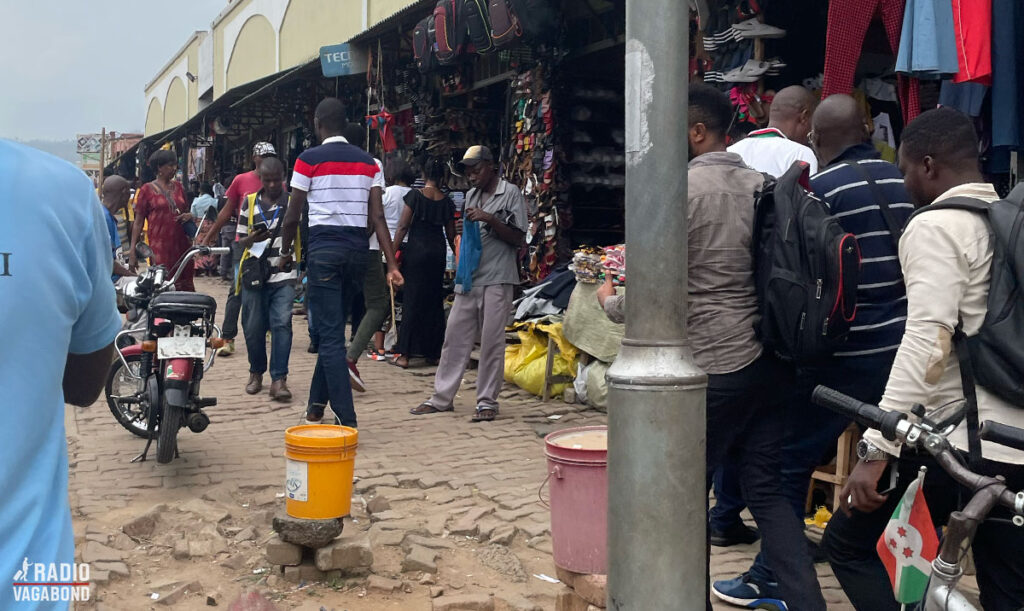
A Tale of Two Lands
Although Rwanda and Burundi are neighbouring “sister countries” with a shared history and intertwined pasts, they are on very different paths today. Rwanda has made impressive progress with its economy, healthcare and technology. However, life remains an immense struggle for many people in Burundi.
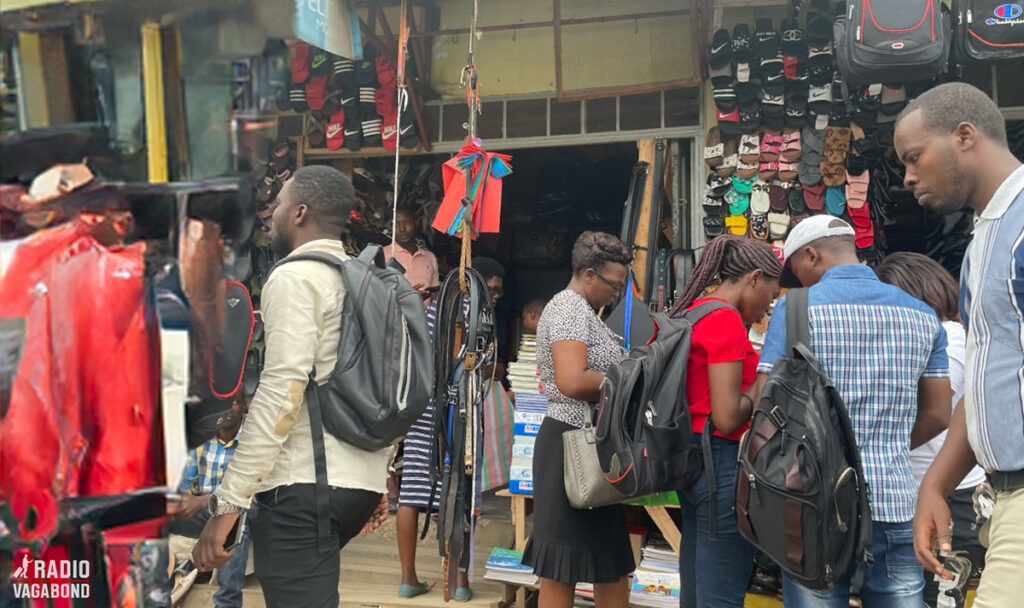
Despite being separate nations, Rwanda and Burundi are connected by more than just geography. Their shared heritage and collective memories go beyond physical borders, rooted in a history that has profoundly impacted their societies. The legacy of being colonized by Belgium united diverse ethnic groups through shared adversity and resilience. This fostered a sense of unity celebrated through language, traditions and community bonding.
While their current realities differ vastly, Rwanda and Burundi’s deep-rooted ties through tradition and their ability to overcome hardships together bind these nations at their core. Their intersected pasts and the strength drawn from diversity create an underlying connection that transcends modern borders.
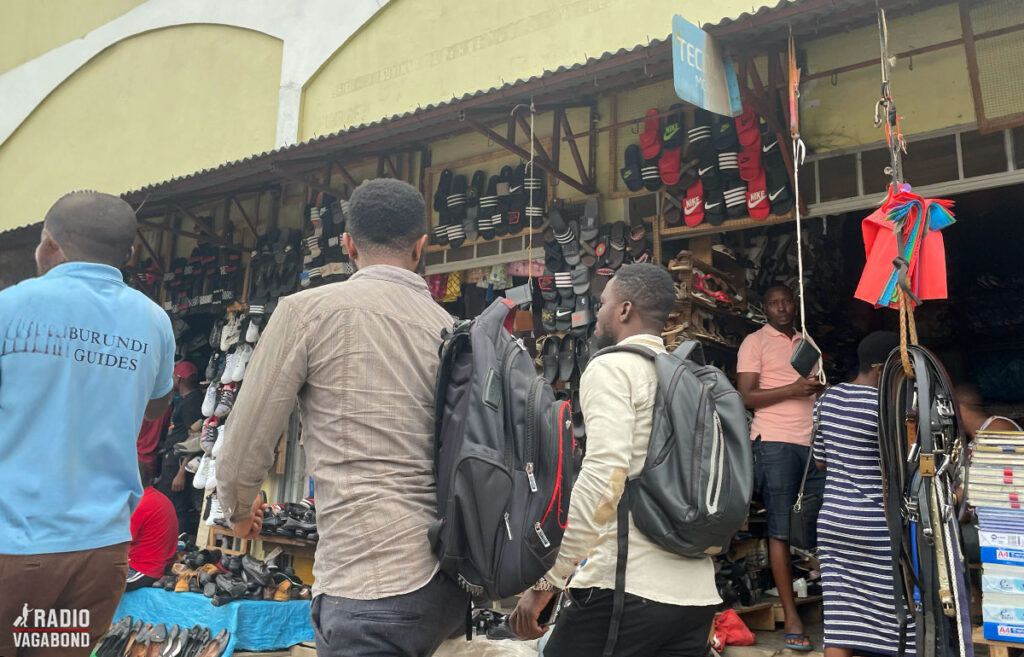
A Warm Welcome
As my plane landed in Bujumbura after a short 25-minute flight from Kigali, I knew I was entering a country that most tourists overlook. Little did I know that this unassuming nation, so different from its prosperous neighbor Rwanda, would captivate me despite its challenges.
Despite facing economic uncertainties, unrest and social issues, a remarkable resilience and optimism persists out of sheer necessity to persevere against the odds.
While Rwanda has become a success story, Burundi is the poorest country in the world, according to the International Monetary Fund and the World Bank.
Have a look at this graphic from Visual Capitalist.
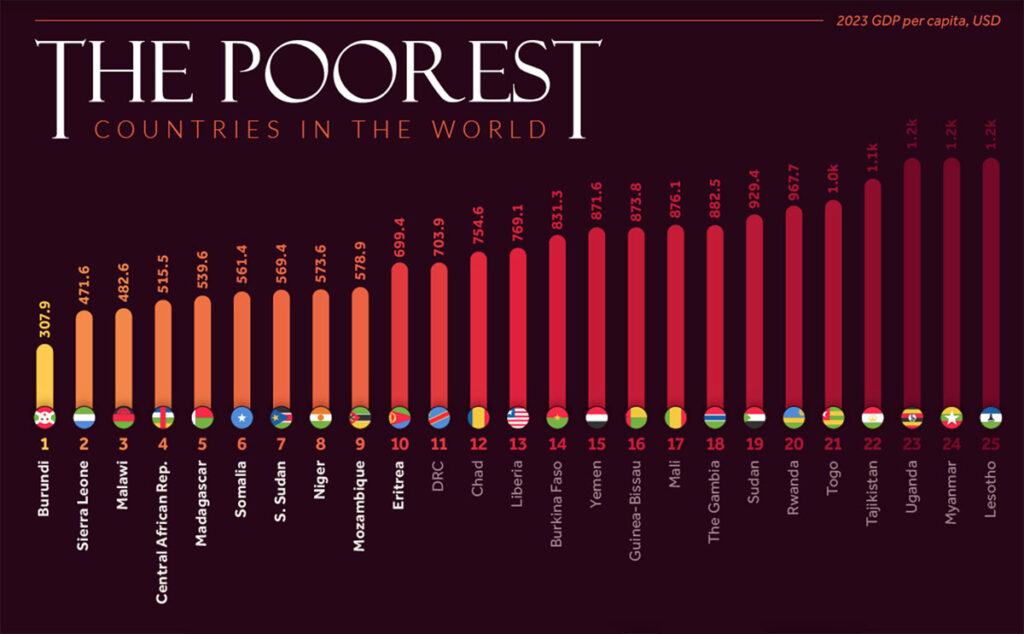
I mentioned before that they don’t get many tourists here. In fact, it’s one of the least visited countries in the world – out of the 193 UN Nations, Burundi ranks 167th on the list. So, when I was in the minibus to the hotel, I spoke to a local woman from the hotel – and she was very surprised that I was there as a tourist.
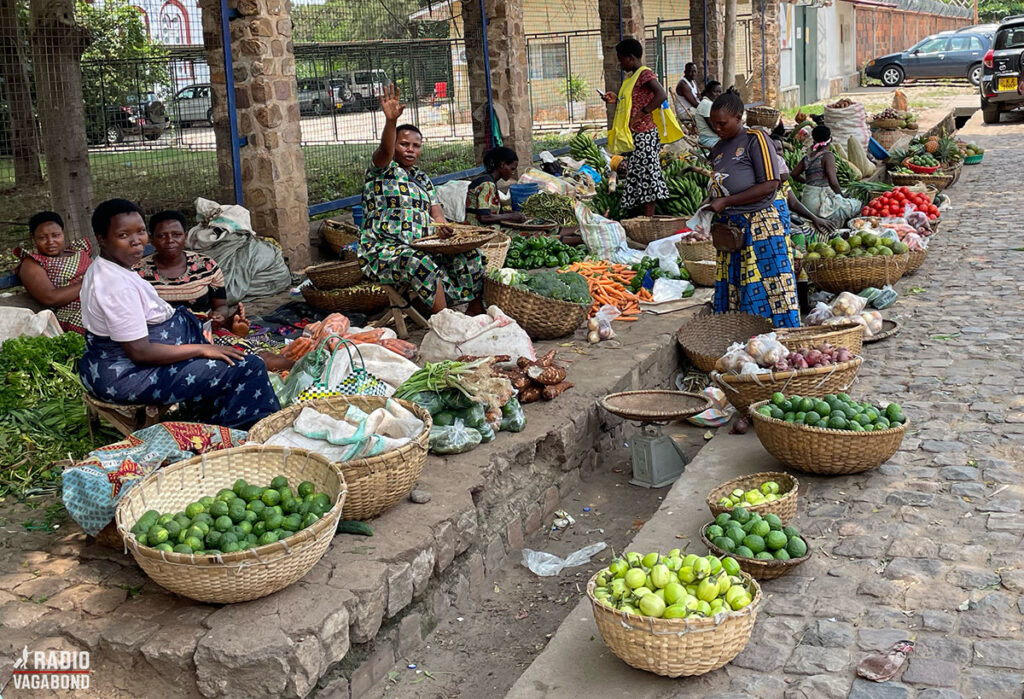
A Local’s Perspective
Upon meeting “Leah” (not her real name), she expressed surprise at the presence of a tourist in her country. She mentioned Burundi’s iconic drumming tradition, the “Drummers of Burundi,” which embodies the spirit, identity, and heritage of the Burundian people – a profound cultural ritual I hoped to experience during my visit.
Acknowledging the stark contrast between Burundi and its northern neighbour Rwanda, Leah noted that while Rwanda’s progress highlights what’s possible with the right leadership and policies, Burundi’s struggles remind us of the work still needed to fight poverty and improve living conditions.
However, she added with resilience and strength, the people of Burundi keep pushing forward, hoping for a better future by trying to emulate some of Rwanda’s initiatives, like monthly cleaning days and a ban on plastic bags. With the right support and changes, Leah mused, Burundi could follow in Rwanda’s footsteps towards greater prosperity and stability.
WHO ARE YOU?
Please spend five minutes taking a the survey – tell me a bit about who you are and what you would like more or less on here on The Radio Vagabond.
A Serendipitous Connection
A few months earlier, while in Uganda, I had received a random friend request on Facebook from Gabriel Ndikumana, a tour guide in Burundi. Since I had plans to visit, I accepted, and Gabriel became my guide, showing me the local side of his country.
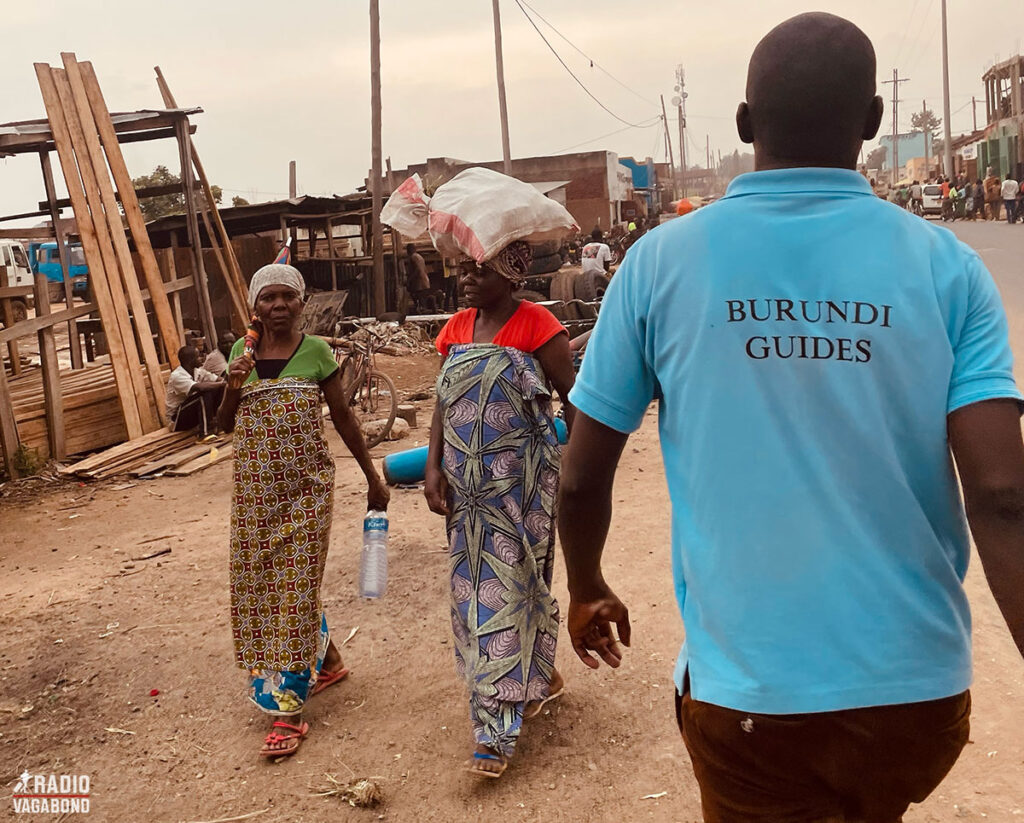
An Oddity in the City
As we stroll through the heart of Bujumbura, the city pulsates with life around me. The sun beats down, casting sharp shadows, and the air carries a mix of scents, from the earthy aroma of rain on hot pavement to the tantalizing smells of street food being cooked on open grills.
The buildings in the city center are a patchwork of styles, from colonial-era facades with their weathered charm to more modern structures. Some buildings wear their history on their peeling paint, while others stand boldly in brighter colors, each telling a story of Bujumbura’s past and present.
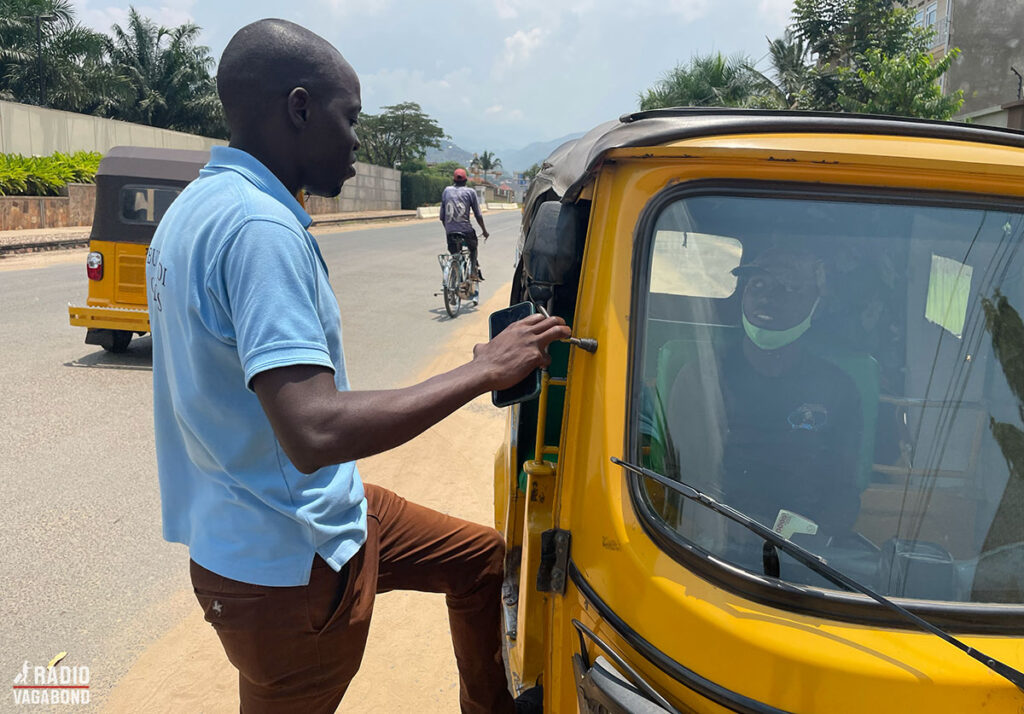
Sidewalk markets line the streets, vibrant with activity. Women, the backbone of these markets, sit surrounded by mountains of fresh fruits and vegetables, textiles, and handmade crafts. Their skilled hands move quickly, sorting produce as they keep a watchful eye on potential customers. Their traditional dresses, bright and colorful, add to the kaleidoscope of colors around me.

Sidewalk markets line the streets, vibrant with activity. Women, the backbone of these markets, sit surrounded by mountains of fresh fruits and vegetables, textiles, and handmade crafts. Their skilled hands move quickly, sorting produce as they keep a watchful eye on potential customers. Their traditional dresses, bright and colorful, add to the kaleidoscope of colors around me.
The streets are alive with the sounds of city life. Car horns blare in the middle of the hum of conversation and the occasional shout of vendors. Walking through Bujumbura’s center, I’m in a world that’s both foreign and familiar. It’s a place of contrasts, where tradition meets modernity, and every corner offers a new discovery.
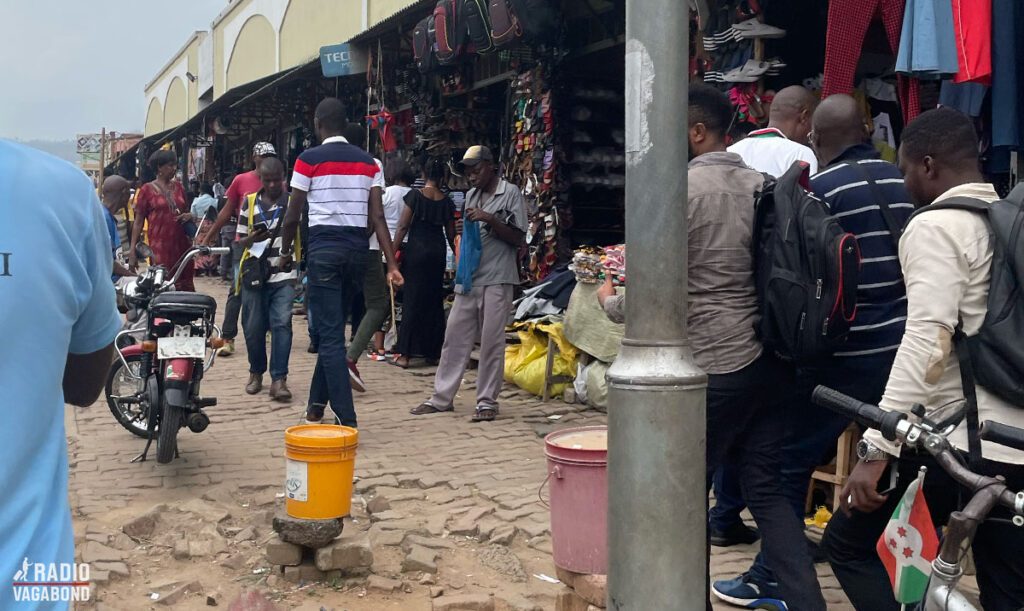
The latest population number I could find is actually 13.2 million people – right now but that number might be higher pretty soon. It has a growing rate of 2.87%, making it one of the fastest-growing countries in the world; so, Burundi could also face overpopulation in the future.
On our 30-minute walk I noticed that I was different. In fact, during the entire day I didn’t see a single other face the same colour as mine. And people are very aware that I looked different. I catch the curious gazes of children. They stare openly, some with shy smiles, others with a mix of amusement and wonder in their eyes. I’m an oddity here, a white man in a sea of faces not used to seeing someone like me. Their innocent stares remind me of the vast world we live in, filled with diverse people and stories.
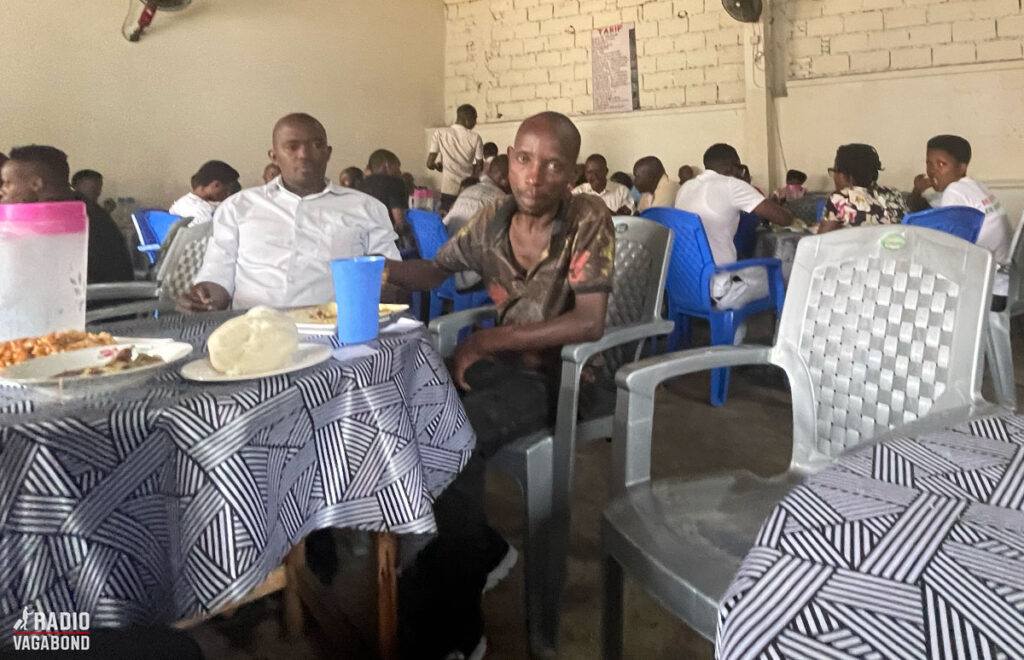
Authentic Flavors
Gabriel suggests that we go for lunch at the fanciest hotel in the city. But that’s not what I’m here for, so I say: “No, let’s have lunch where you would have lunch – not some upscale place for rich tourists.”
We ended up at a place that looked more like a small warehouse than a restaurant. Around 50 local people were sitting on plastic chairs having a quick lunch before going back to work.
Burundian food is delicious. One of the most striking features of Burundian cuisine is the reliance on fresh, locally sourced ingredients. Most of the food is harvested from the fields and immediately used in cooking, ensuring a high level of freshness and nutrition. Given its proximity to Lake Tanganyika, fish is a significant part of the diet in Burundi.
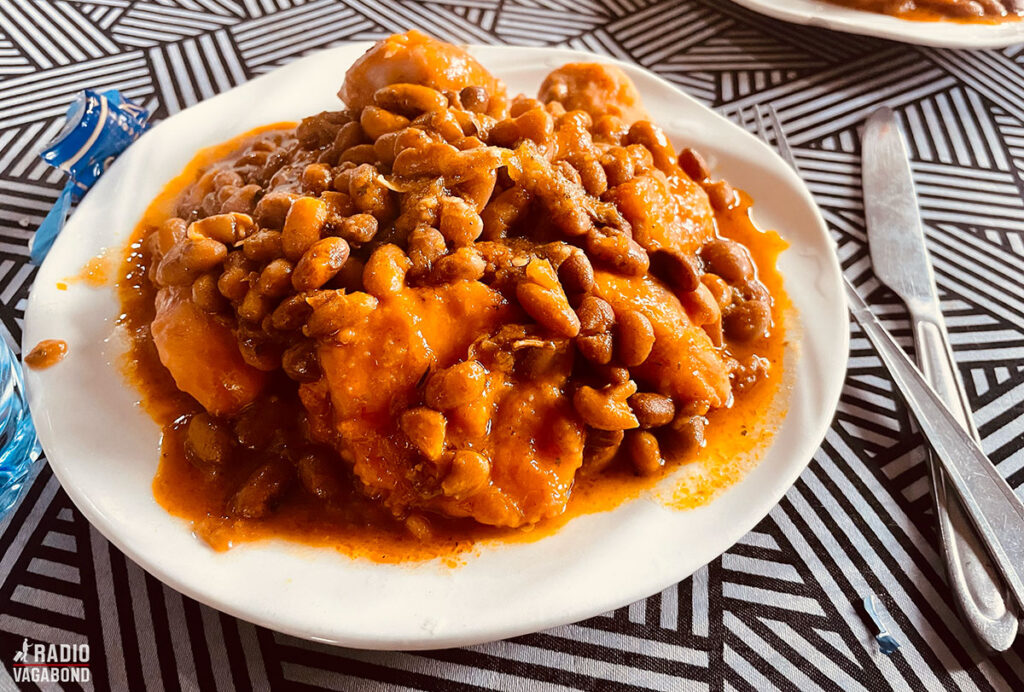
Meat on the other hand is something that’s not that common, because of economic reasons. And due to its fertile land, Burundi is rich in fruit production. Papayas, bananas, plantains, sweet potatoes, beans, maize, mangoes, avocados, and pineapples are common and eaten fresh or used in cooking.
I also said to Gabriel that he could choose what to order. There was more food than we could eat, it was very tasty, and very cheap.
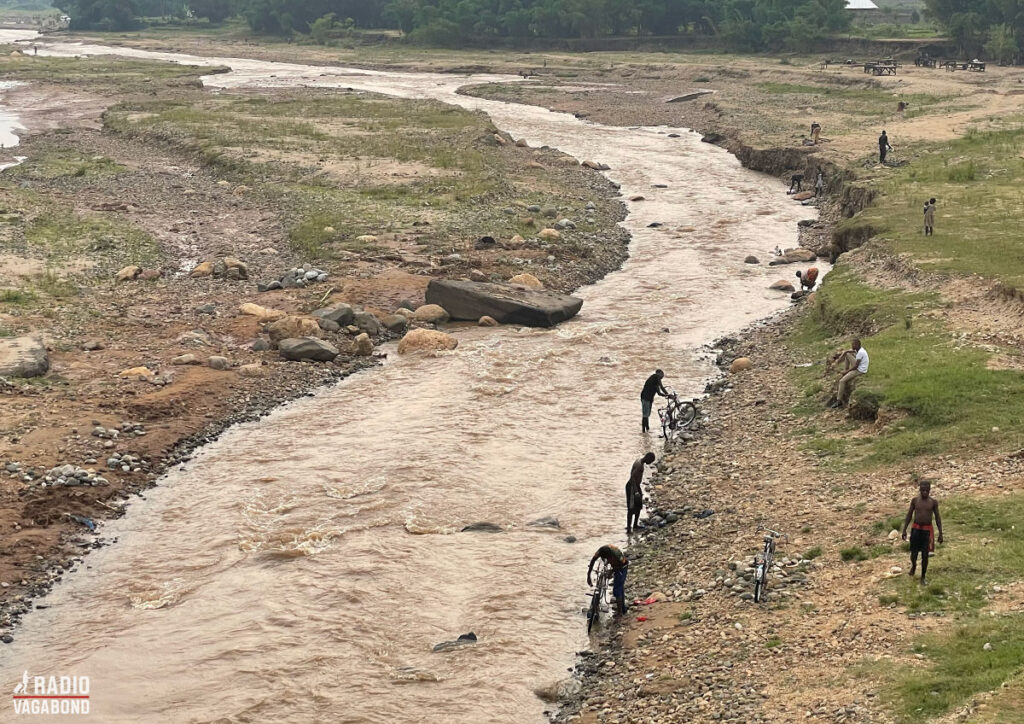
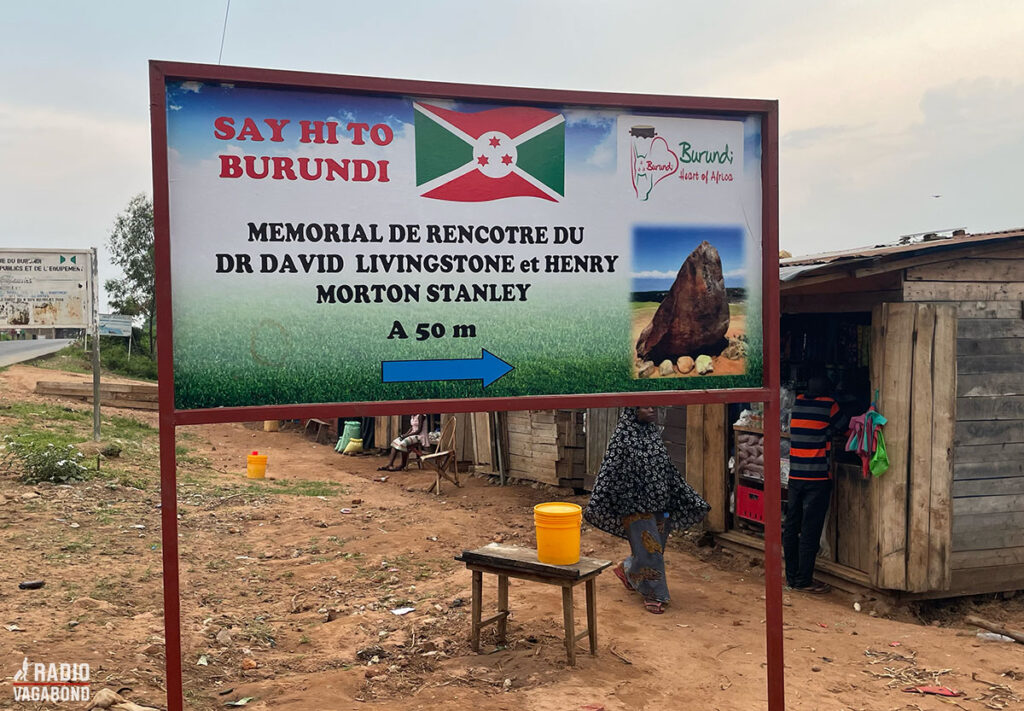
Echoes of Exploration
Our next stop was the Livingstone-Stanley Monument. It’s basically just a big rock and two statues of guys with moustaches about to shake hands. This should mark the location where explorer and missionary Dr David Livingstone and journalist and explorer Henry Morton Stanley visited and spent two nights in 1871.
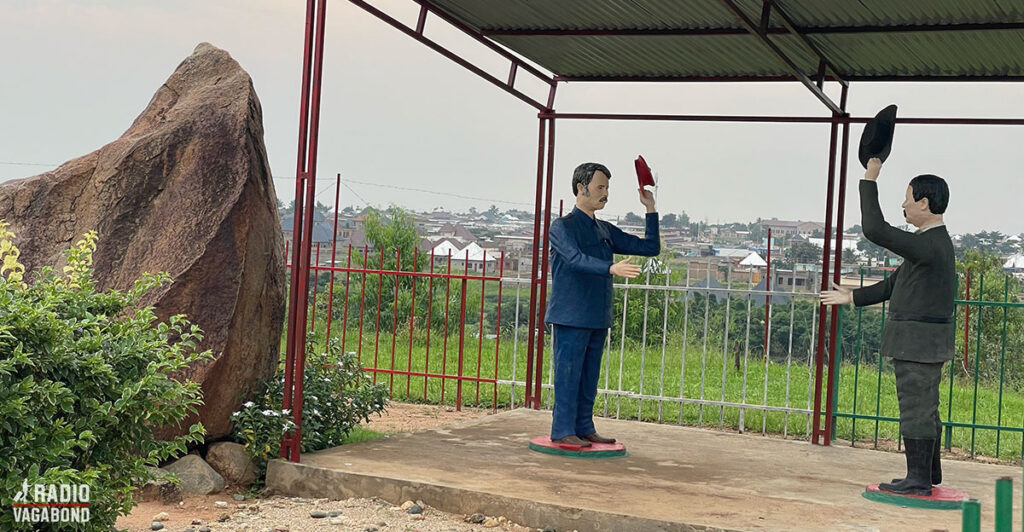
It’s not the location is where the famous first meeting of Livingstone and Stanley took place, at Stanley said the famous words “Dr Livingstone, I presume?”. That was a few weeks earlier a little south in Tanzania.
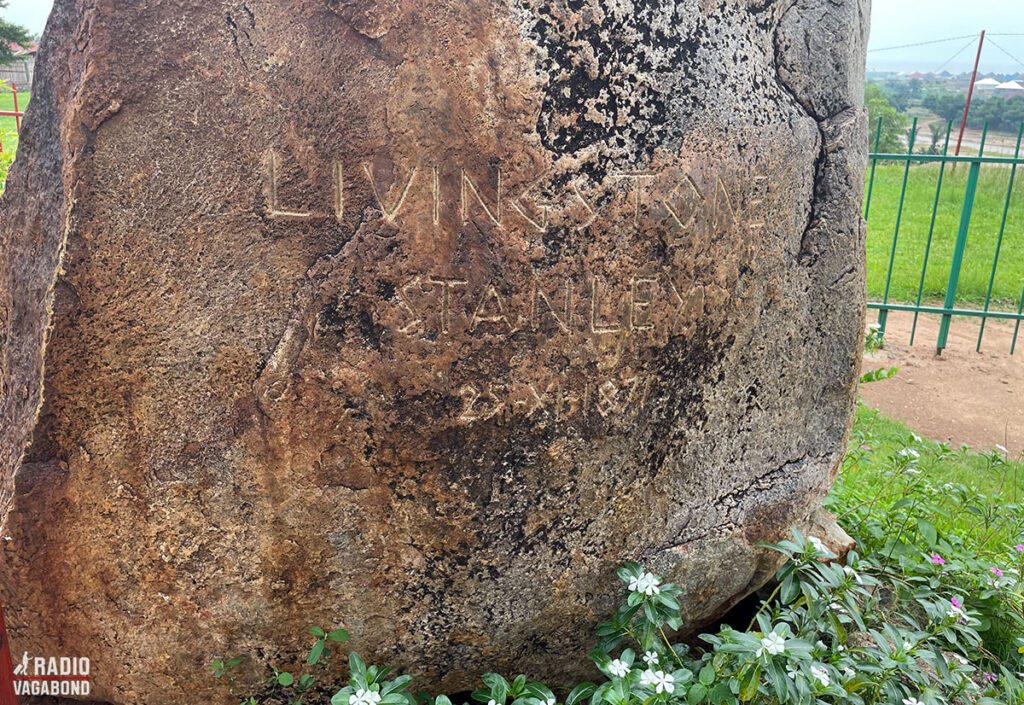
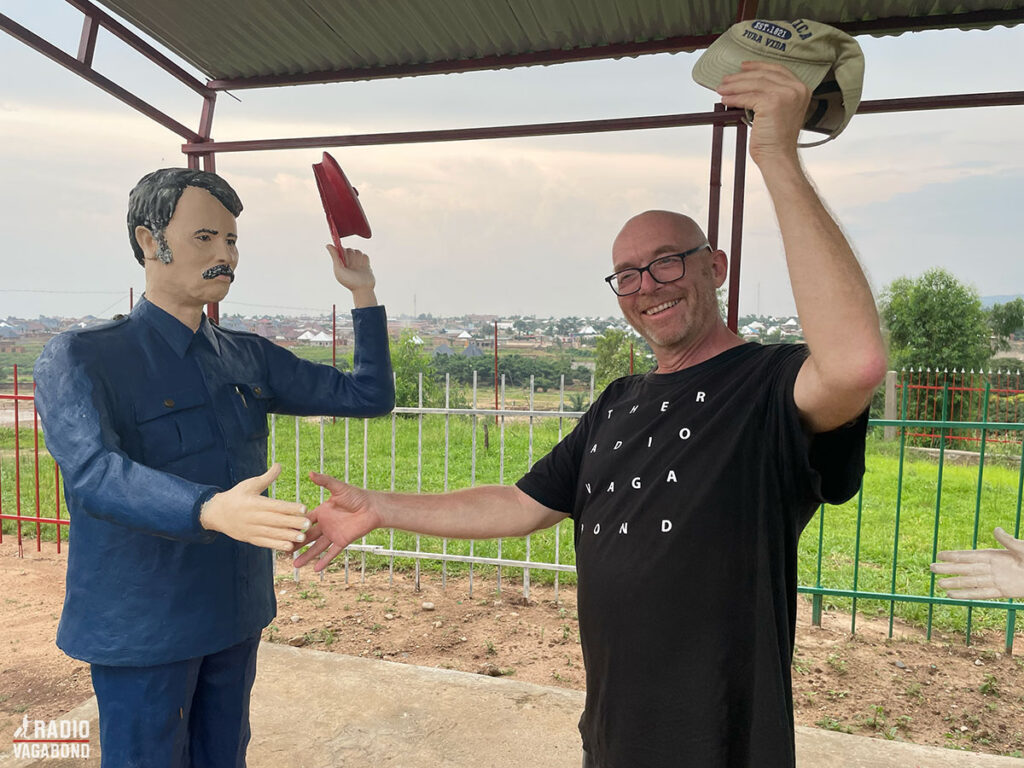
Again, I notice wonderful kids eyeballing me and 7-10 kids are following us. Suddenly, as we’re walking out of there, I feel that the 5-year-old boy on my right takes my hand, and when the other kids saw that, two other kids were fighting to hold my left hand.
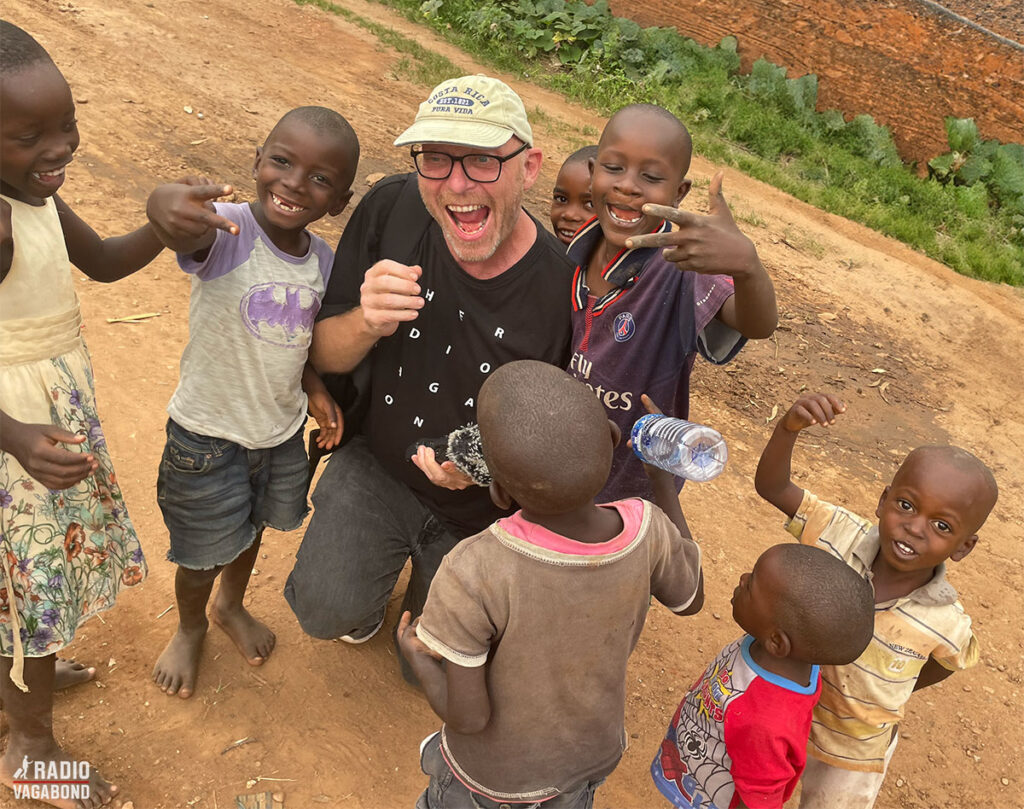
A Natural Wonder
I wanted to see Lake Tanganyika. It’s an impressive natural wonder, famous for being the world’s second deepest and second-largest freshwater lake by volume, as well as the longest. Stretching across four countries – Burundi, the Democratic Republic of Congo, Tanzania, and Zambia – it’s a vital resource for millions living along its shores.
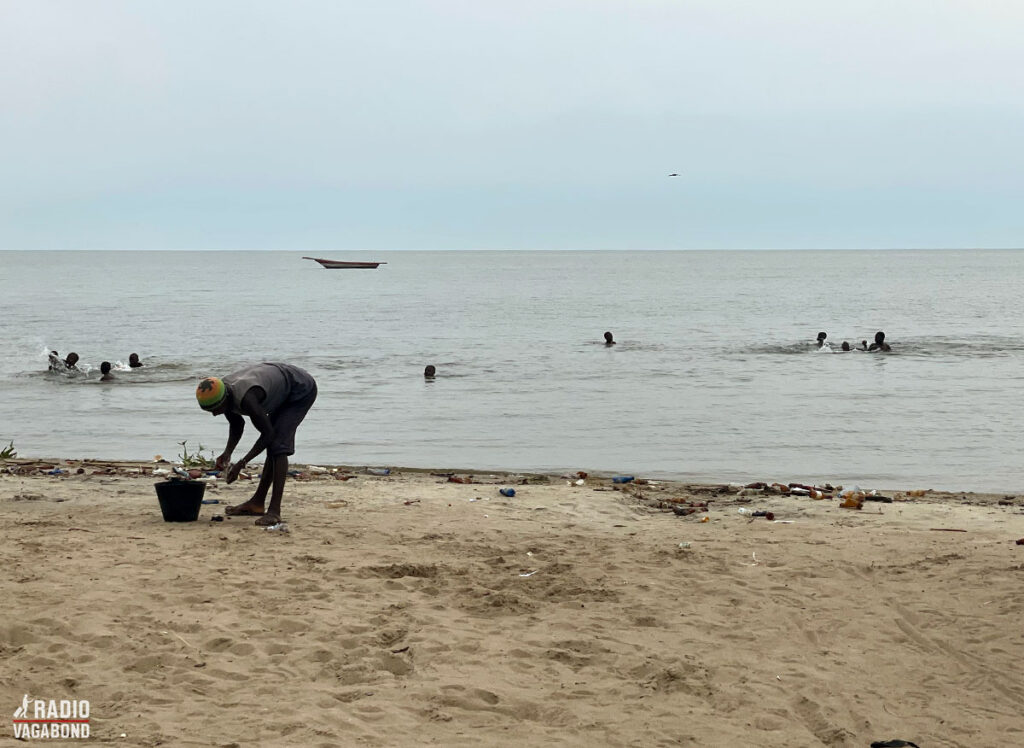
The lake is a biodiversity hotspot, especially famous for its unique species of cichlid fish, many of which are found nowhere else on Earth. This makes it a critical site for both conservation and scientific research.

But the lake faces environmental challenges, like overfishing and pollution, which is a threat for its delicate ecosystem and the livelihoods of local communities dependent on its waters.
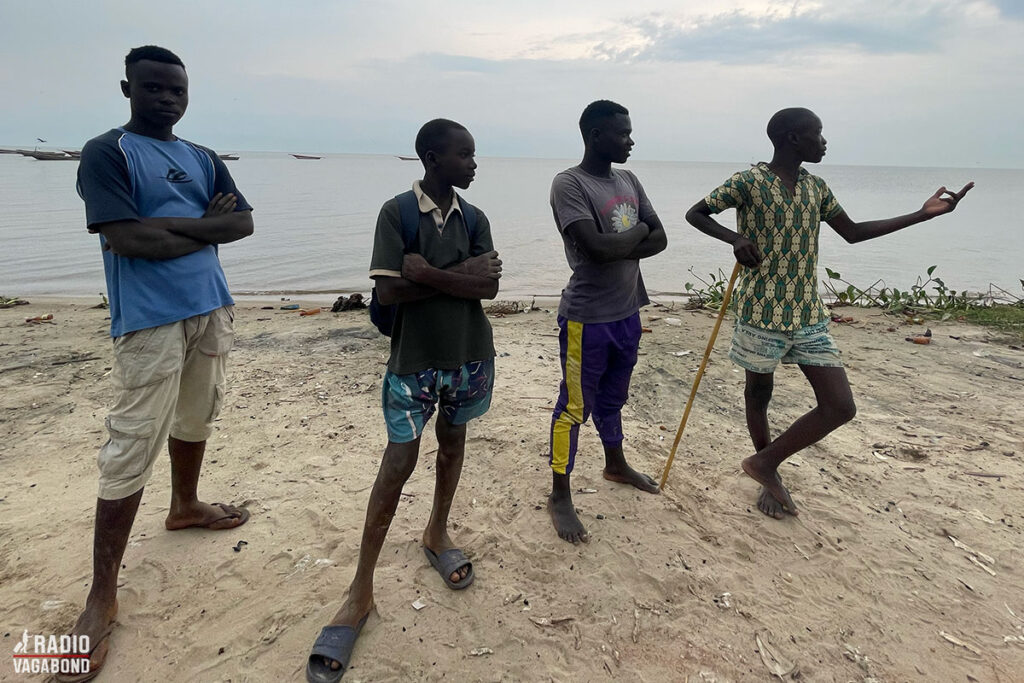
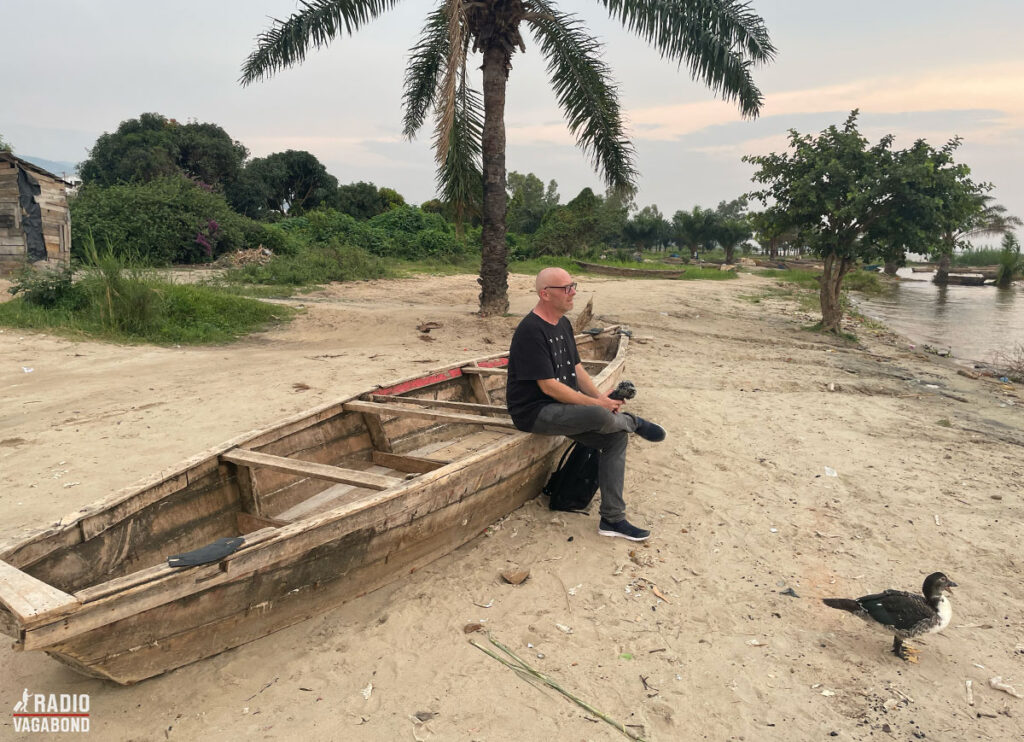
The Beating Heart of Burundi
The afternoon ended on a high when we randomly walk past a group of traditional Burundian Drummers practicing their show.
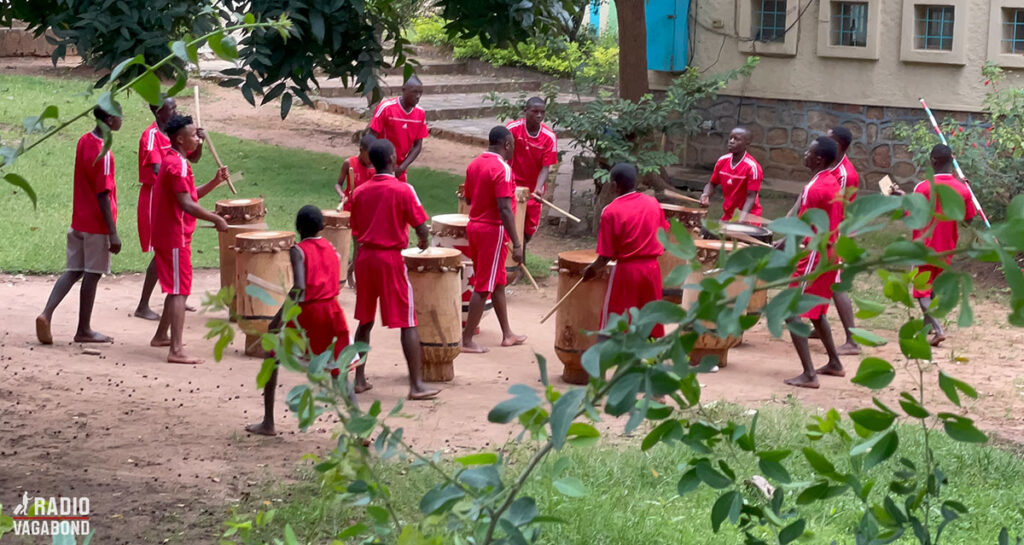
The drums, or “Ingoma,” as they are known locally, are not just any drums; they are made from hollowed-out tree trunks covered with animal skins, and they produce a deep, resonant sound that can be heard from miles away. The act of drumming is not merely about creating rhythm; it’s a form of communication, a way to celebrate, and a means to bring the community together.
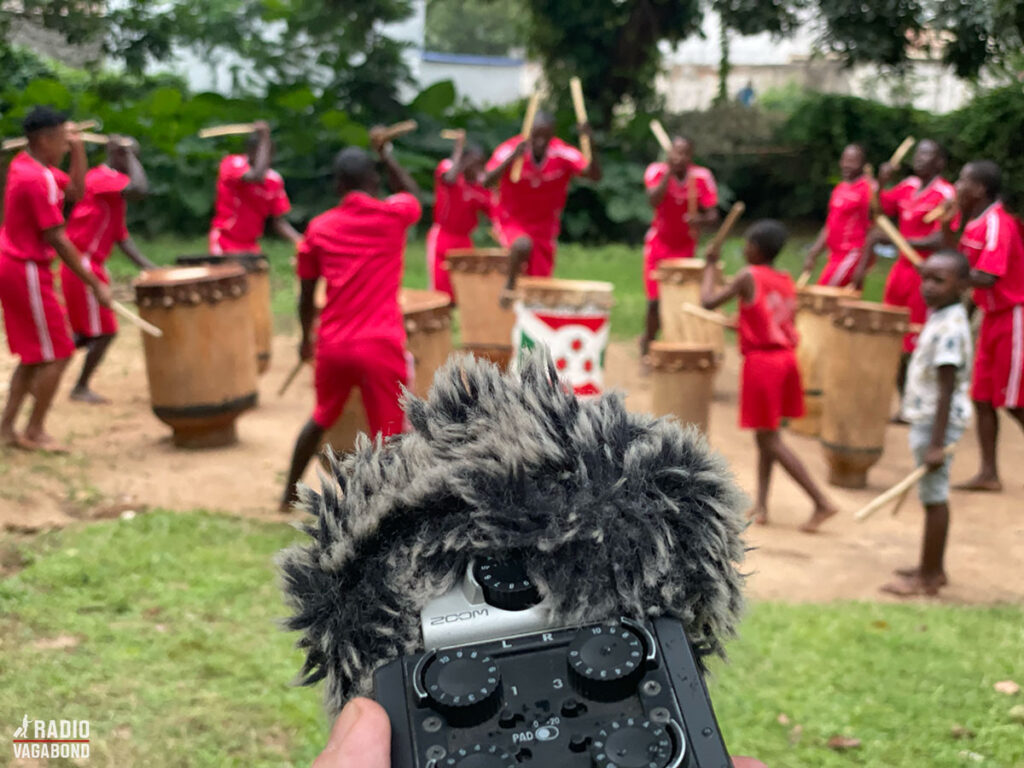
Historically, the drumming was performed during important events and ceremonies such as coronations, harvests, weddings, and festivals. It was also a way to summon people to meetings or to alert them to important news. The drummers, who are highly respected in Burundian society, perform in a group, each playing a specific role, with the lead drummer setting the pace and rhythm.
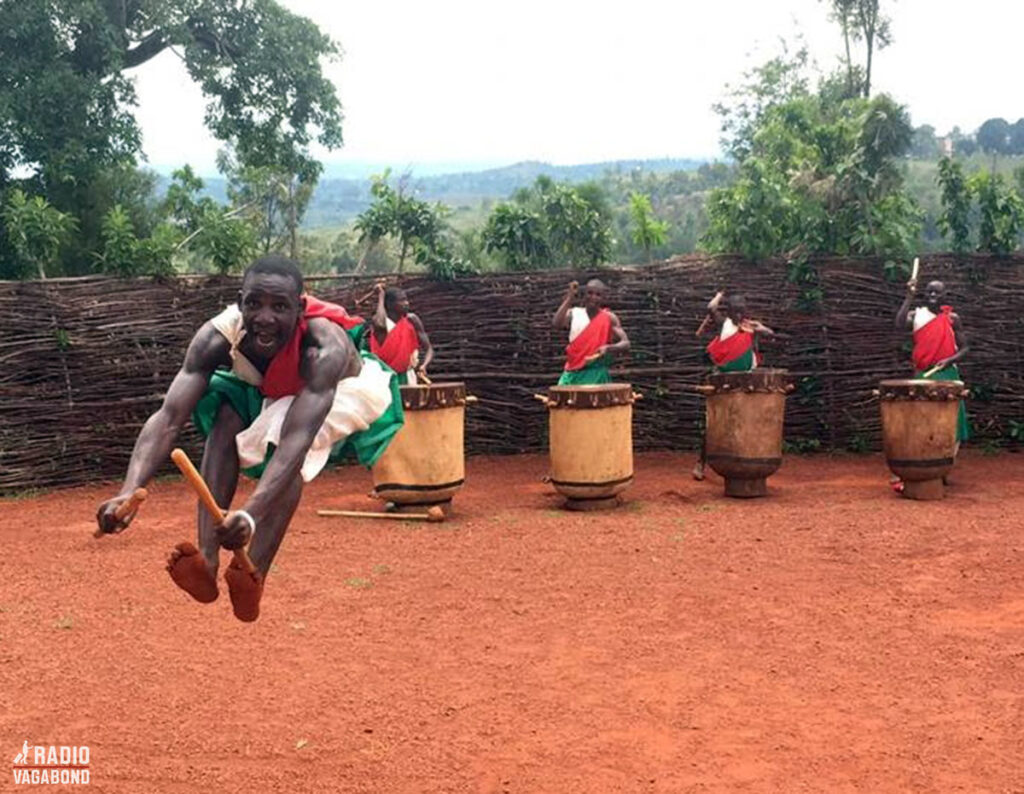
The performance is highly energetic and acrobatic. Drummers often dance and jump high up in the air while playing, showcasing their physical stamina, making the performance a visually stunning spectacle. The choreography is precise, with each movement and beat having significance, contributing to the narrative and emotion of the performance.
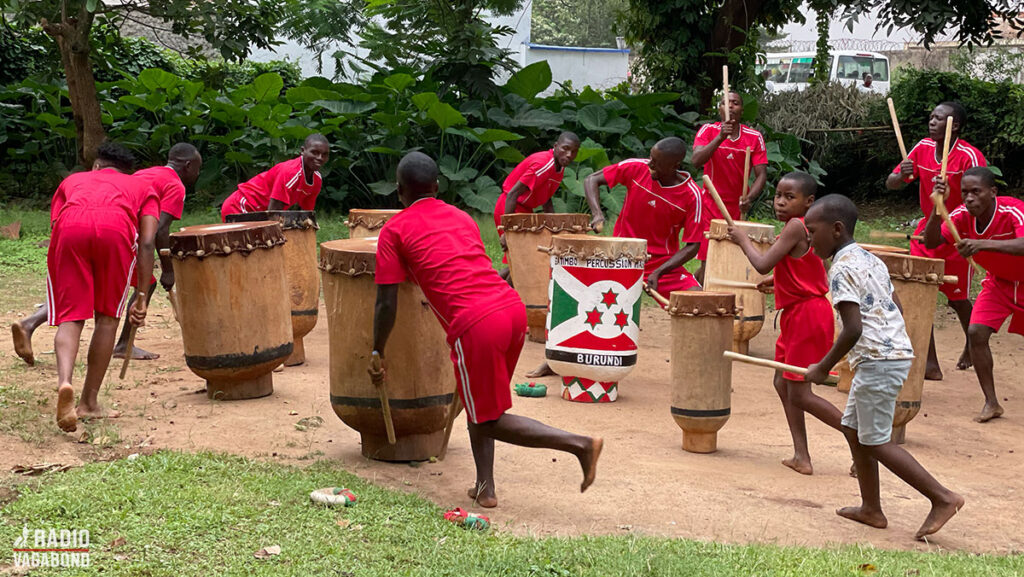
This drumming tradition is recognized internationally and has been performed at various cultural events and festivals around the world, serving as a powerful ambassador for Burundian culture. And this group is about to go on a tour in Europe. I am so glad I got to see it – with an exclusive audience of only two people. Just me and Gabriel.
Make sure to see the videos below.
Cultural Treasures and Traditions
During my travels in Rwanda and Burundi, I was fully immersed in their rich cultures and traditions. The warm hospitality, vibrant colors, and lively sounds blended into a wonderful cultural experience. From the rhythmic drumming rituals in the hills of Burundi to the bustling markets in Rwanda, each moment gave me a glimpse into the heart of these nations.
Despite being two separate countries, I noticed how Rwanda and Burundi share a deep connection through their heritage and intertwined histories – both the triumphs and challenges. This reminded me that we’re all bound together as human beings, no matter our differences.
Exploring these lands was a mix of joy and sadness, triumph and hardship. But through it all, a powerful sense of hope persisted. It guided the way forward like a bright light.
In Rwanda, I saw firsthand how visionary leadership and international teamwork can drive positive change, with progress in economic development and social reconciliation.
In Burundi, I was humbled by the resilience and strength of the people, refusing to be defined by their difficult circumstances. Their unwavering spirit echoed across the valleys, inspiring hope.
Through adversity, Rwanda and Burundi showed the incredible depths of human resilience and the boundless potential of the human spirit. Their stories remind us that even in the darkest times, hope is a mighty force that leads us to a future filled with promise.

A Hidden Gem
Despite the country’s challenges, I never felt unsafe, thanks to Gabriel’s guidance. Burundi is a hidden gem, and I encourage you to visit – you’ll be warmly welcomed by its resilient and hospitable people.

Embracing Diversity, Embracing Unity
My reflections on the journey through Rwanda and Burundi illuminate the profound beauty of diversity and the transformative power of unity. Despite the distinctions that separate them, these two lands are united by a common thread of humanity, embarking on a shared voyage towards a brighter tomorrow.
As I draw this adventure to a close, I extend an invitation to embark on this voyage of discovery with me – to delve into the hidden treasures and untold narratives that await in every corner of our world. In embracing diversity, we unlock the richness of human experience and unlock the boundless potential of our shared humanity. Together, let us embrace the differences that make us unique and celebrate the unity that binds us all.
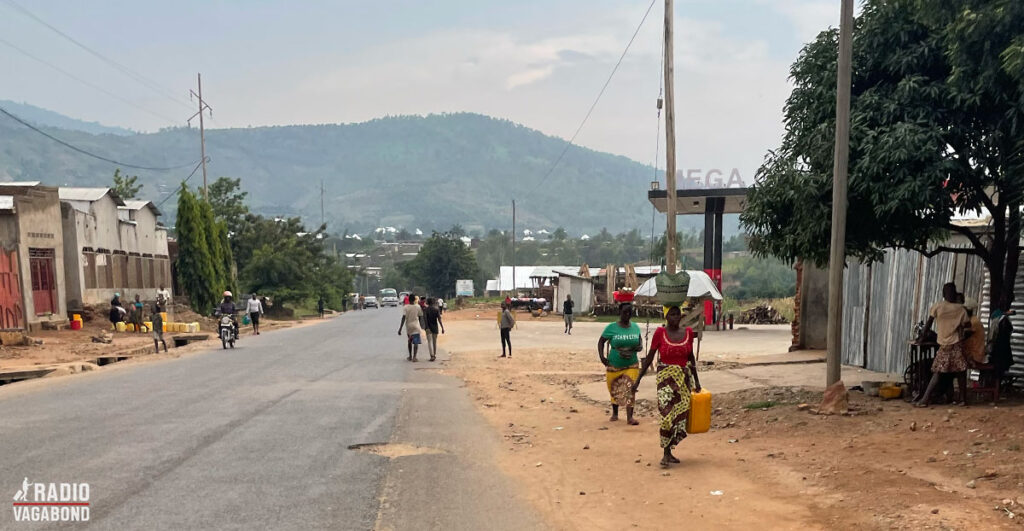
Put Burundi on Your Bucket List
Go to Burundi. It’s a great country, and you can get a visa on arrival at the Airport International here. All you need is a valid passport.
See you on Saturday for another Vagabond Shorts both here on the podcast and as a video on my YouTube channel and Facebook page. Both are called The Radio Vagabond.
That’s right… next week we’re saying G’day to Australia.
My name is Palle Bo, and I gotta keep moving. See you.
Looking for a great Burundi Guide?
Connect to Gabriel
- Website: YourBurundiGuides.com
- Instagram: @burundiguides
- Facebook page: Burundi Guides
- WhatsApp: +257 69 52 87 84
If you reach out, please say hi from me. And let me know if you do.
I WOULD LIKE TO HEAR FROM YOU!
Please tell me where are you and what are you doing as you listen to this episode? You can either send me an email on listener@theradiovagabond.com, go to TheRadioVagabond.com/Contact or send me a voice message by clicking on the banner.

Either way, I would love to hear from you. It’s so nice to know who’s on the other end of this.
SPONSOR
A special thank you to my sponsor, Hotels25.com, who always provide me with the best, most affordable accommodation wherever I am in the world.
Hotels25 scans for prices on the biggest and best travel sites (like Booking.com, Hotels.com, Agoda and Expedia) in seconds. It finds deals from across the web and put them in one place. Then you just compare your options for the same hotel, apartment, hostel or home and choose where you book.
When you book with Hotels25, you get access to 5,000,000 hotel deals. And it’s “best price guaranteed.”
PRODUCED BY RADIOGURU
The Radio Vagabond is produced by RadioGuru. Reach out if you need help with your podcast.
